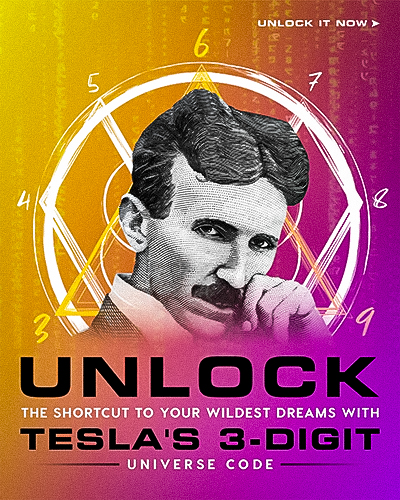
DID WE ALWAYS DREAM?
That may seem like a silly question, but think about early man. Have people always dreamt even when the world around them was quite simple and mundane?The answer is yes. While we cannot have definitive proof of paleo-man, we can know that back in the Roman Era, striking and significant dreams were submitted to the Senate for analysis and interpretation.
 What did man do with these odd images that appeared during their sleep? Well, they did what we do today – tried to interpret them! Dream interpretations date back to 3000-4000 B.C. where they were documented on clay tablets.
What did man do with these odd images that appeared during their sleep? Well, they did what we do today – tried to interpret them! Dream interpretations date back to 3000-4000 B.C. where they were documented on clay tablets.
For as long as we have been able to communicate our dreams, we have been fascinated with them and strive to understand them. People in primal societies were unable to distinguish between the dream world and reality.
They not only saw the dream world as an extension of reality, but that the dream realm was a more powerful world. Back in the Greek and Roman era, dreams were often seen in a religious context and messages from the gods.
Temples, called Asclepieions were built around the power of dreams. It was believed that sick people who slept in these temples would be sent cures through their dreams. In Egypt, priests also acted as dream interpreters.

The Egyptians recorded their dreams in hieroglyphics. People with particular vivid and significant dreams were believed to be blessed and were considered special. People who had the power to interpret dreams were looked up to and seen as divinely gifted. In the bible, there are over seven hundred mentions of dreams.
Tracing back to these ancient cultures, people had always had an inclination to interpret dreams .
Dreams were also seen as prophetic and an omen from outside spirits. People often looked to their dreams for signs of warning and advice from a deity, from the dead or even the works of a demon.
Sometimes they look to their dreams for what to do or what course of action to take. Dreams often dictated the actions of political and military leaders. In fact, in the Green and Roman era, dream interpreters even accompanied military leaders into battle to help. Some interpreters aided the medicine men in a diagnosis.
Dreams offered a vital clue for healers in finding what was wrong with the dreamer. Dreaming can be seen as an actual place that your spirit and soul leaves every night to go and visit.
The Chinese believed that the soul leaves the body to go into this world. However, if they should be suddenly awakened, their soul may fail to return to the body. For this reason, some Chinese today, are wary of alarm clocks. Some Native American tribes and Mexican civilizations share this same notion of a distinct dream dimension.
They believed that their ancestors lived in their dreams and take on non-human forms like plants. They see that dreams as a way of visiting and having contact with their ancestors. Dreams also helped to point their mission or role in life. During the Middle Ages, dreams were seen as evil and its images were temptations from the devil.
In the vulnerable sleep state, the devil was believed to fill the mind of humans with poisonous thoughts. He did his dirty work though dreams attempting to mislead humans down a wrong path. In the early 19th century, dreams were dismissed as stemming from anxiety, a household noise or even indigestion.
Hence there was really no meaning to it. Later on in the 19th century, Sigmund Freud revived the importance of dreams and its significance and need for interpretation. He revolutionized the study of dreams.
Jung studied under the tutelage of Sigmund Freud. Their differing views on dreams and dream interpretations led to a permanent rift that led them to go their separate ways.
Like Freud, Jung believed in the existence of the unconscious. However, he didn’t see the unconscious as animalistic, instinctual, and sexual; he saw it as more spiritual. Dreams were a way of communicating and acquainting ourselves with the unconscious.  Dreams were not attempts to conceal our true feelings from the waking mind, but rather they were a window to our unconscious. They served to guide the waking self to achieve wholeness. Dreams offered a solution to a problem we are facing in our waking life.
Dreams were not attempts to conceal our true feelings from the waking mind, but rather they were a window to our unconscious. They served to guide the waking self to achieve wholeness. Dreams offered a solution to a problem we are facing in our waking life.
Jung viewed the ego as one’s sense of self and how we portray ourselves to the world. Part of Jung’s theory was that all things can be viewed as paired opposites (i.e. good/evil, male/female, or love/hate). And thus working in opposition to the ego, is the “counter-ego” or what he referred to as the shadow.
The shadow represents rejected aspects of yourself that you do not wish to acknowledge. It is considered an aspect of yourself which is somewhat more primitive, uncultured, and awkward.” He said, “Dreams are the main source of all of our knowledge about symbolism.” This means that the messages you receive from your dreams are expressed symbolically and must be interpreted to find their true meanings.
Dreams Unlock the Power of Your Mind
Jung says that rarely do the symbols in dreams have just one meaning.  And when interpreting the messages in your dreams, he suggests going with your first hunch, relying on your intuitive abilities, before applying more rational methods of dream interpretation.
And when interpreting the messages in your dreams, he suggests going with your first hunch, relying on your intuitive abilities, before applying more rational methods of dream interpretation.
Perhaps one of the most fascinating dream theorists might be Edgar Cayce.
Today, we would call him a psychic. When he was alive, he was a fascinating individual who, it appeared, could speak with the dead, make predictions about the future, and provide insight into areas where the normal person couldn’t go.












